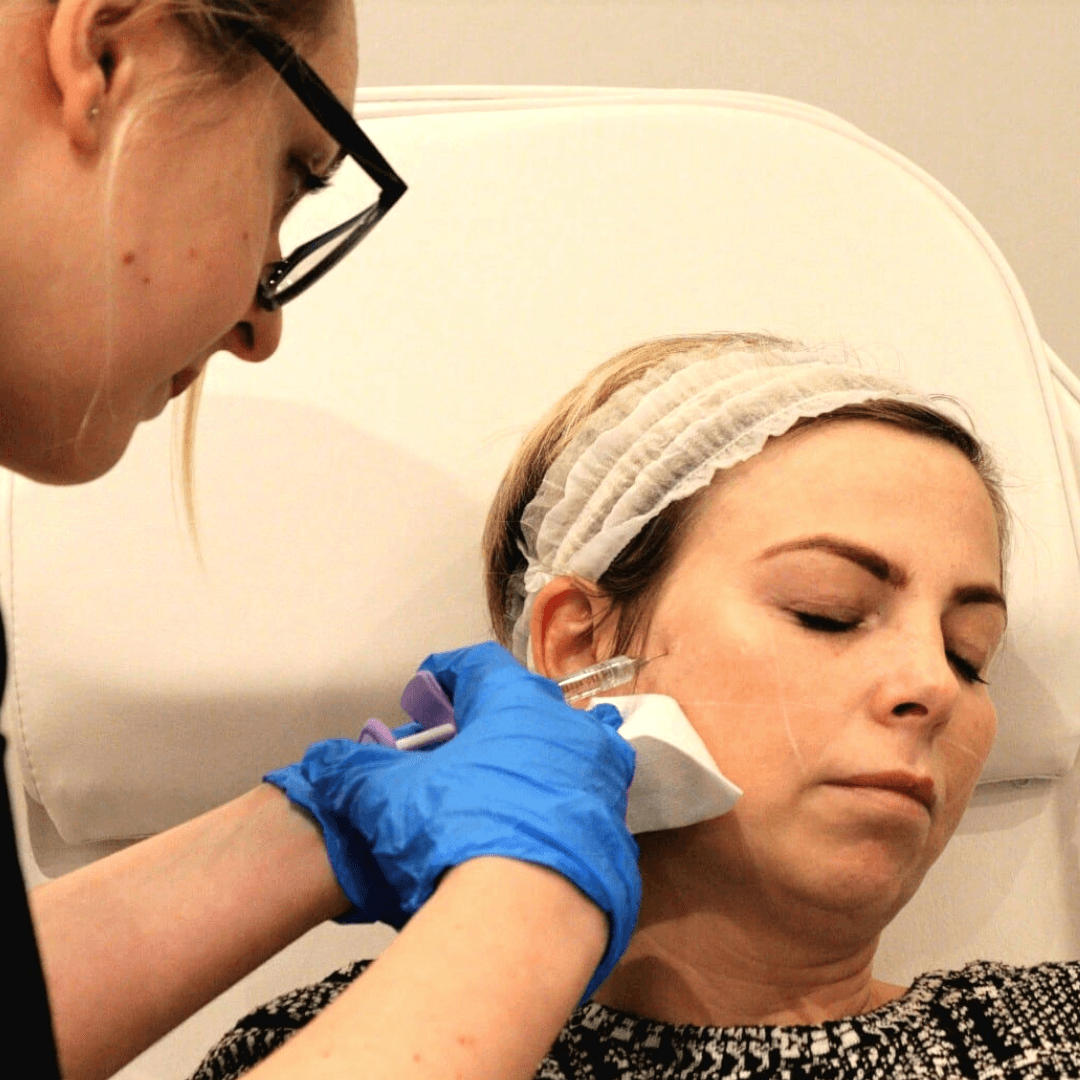Dermal and Lip Filler
Treats: Skin Folds,Wrinkles

What is Dermal Filler?
As we age, our skin loses volume and elasticity and our underlying structural support reduces, this can be mitigated my dermal fillers. Dermal fillers consist of hyaluronic acid, a naturally occurring polysaccharide that is present in skin and cartilage. By injecting filler into the skin at different depths, the skin is rehydrated and volumised, reducing the appearance of static wrinkles associated with aging.
Lip fillers specifically can be used to restore volume lost with age, enhance natural shape, and define the lip border for a more balanced and hydrated appearance. All of our treatments are tailored to suit your individual goals and facial features.
Dermal fillers give an instant rejuvenated effect and last between 6 – 12 months depending on the type of product used and the individual. Some people require multiple treatments in order to achieve the desired look. It is worth noting that exercise and other high intensity activities can stimulate blood flow and shorten the lifespan of fillers.
The affected area will be topically anaesthetised prior to a small needle introducing the dermal filler to minimise any pain or discomfort. Some products contain a local anaesthetic.
Pricing
0.55ml from £200
1ml from £250
2ml from £315
Procedure
Following the initial 30 minute assessment the procedure usually takes less than an hour depending on what is required in your specific case. Local anaesthetic is often used. Sterile instruments and techniques are used throughout to maximise patient safety.
Aftercare
You can return to work the same day as receiving your treatment provided it is not vigorous. We advise to avoid exercise for 24-48 hours exercise following filler injections.
You should not to get a facial, massage (on the treated skin), or microdermabrasion for 2 weeks after filler injections.
Timings
The filler we use (Juvederm) naturally dissolves over a period of 6 – 12 months. When you start to notice the effects waning you can contact us for a repeat procedure, or enquire about our subscription deals.
Contraindications
There are some instances that filler cannot be administered. These include:
- If you are pregnant or breast feeding
- If you have a local skin infection
- If you have a long-term conditions resulting in immunosuppression
- If you have a long-term implant in that area
Potential Complications
Complications are infrequent, but can include:
- Pain, redness, swelling or bruising at the injection site
- Localised infection
- Asymmetry or lumpiness
- Allergic reaction
- Artery embolism resulting in skin death or blindness (depending on area injected)
All patients receive
- Advice on aftercare and what to look out for
- Telephone follow-up at 2 weeks with in person follow-up if required
- Queries or concerns line available to all patients
Practitioners





